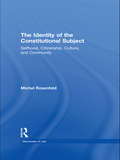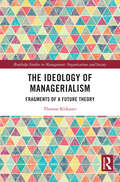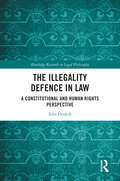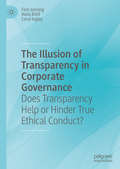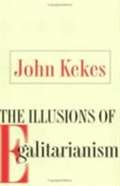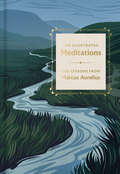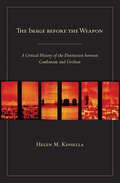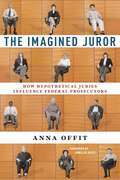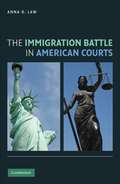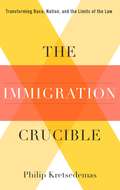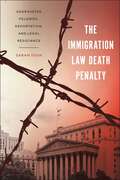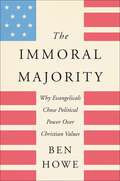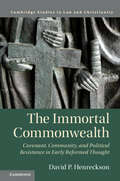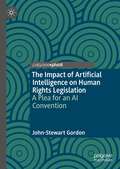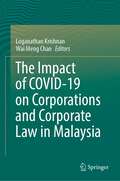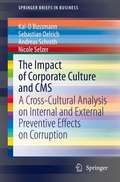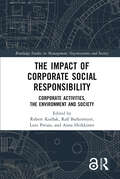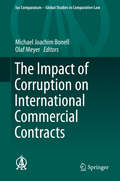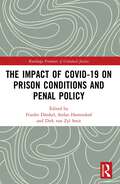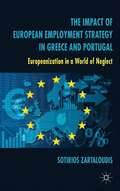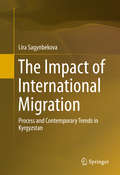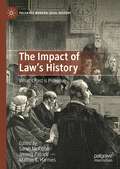- Table View
- List View
The Identity of the Constitutional Subject: Selfhood, Citizenship, Culture, and Community
by Michel RosenfeldThe last fifty years has seen a worldwide trend toward constitutional democracy. But can constitutionalism become truly global? Relying on historical examples of successfully implanted constitutional regimes, ranging from the older experiences in the United States and France to the relatively recent ones in Germany, Spain and South Africa, Michel Rosenfeld sheds light on the range of conditions necessary for the emergence, continuity and adaptability of a viable constitutional identity - citizenship, nationalism, multiculturalism, and human rights being important elements. The Identity of the Constitutional Subject is the first systematic analysis of the concept, drawing on philosophy, psychoanalysis, political theory and law from a comparative perspective to explore the relationship between the ideal of constitutionalism and the need to construct a common constitutional identity that is distinct from national, cultural, ethnic or religious identity. The Identity of the Constitutional Subject will be of interest to students and scholars in law, legal and political philosophy, political science, multicultural studies, international relations and US politics.
The Ideology of Managerialism: Fragments of a Future Theory (Routledge Studies in Management, Organizations and Society)
by Thomas KlikauerThe term “managerialism” is widely used not only in the world of business and government and this book details the theory behind the illusive idea. It distinguishes between management and managerialism and highlights the two groups pushing managerialism, namely corporate apparatchiks and the apostles of managerialism, and outlines twelve key ideas shaping managerialism. These twelve ideas range from profits to ideology, from economic growth and markets to business ethics and corporate social responsibility, from quantification to dehumanisation, from exploitation to short-termism, environmentalism, and homogenisation. Ultimately, this research volume illuminates the pathologies of managerialism and its impact on society, business, government, and the defining issue of our time – global warming. The objective of this book is to move simply beyond using the term “managerialism” by creating a better understanding of it. This means exploring the theory behind managerialism as well as the ideologies that define it. It will be of value to researchers, academics, practitioners, and students looking to gain a deeper understanding of managerialism and how managerialism can be overcome, with particular interest to those in the fields of critical management studies, leadership, corporate governance, and organisational studies.
The Illegality Defence in Law: A Constitutional and Human Rights Perspective (Routledge Research in Legal Philosophy)
by Edit DeutchThe Illegality Defence posits that a cause of action cannot arise from a wrongful act. Barring a claim through the application of this defence contradicts considerations of corrective justice, as the defendant is released from liability even though the claimant would otherwise have been entitled to a remedy. This book re-examines the application of the Illegality Defence, framing it as a State deprivation of property for the public good, underscoring the necessity of constitutional protections in this context. Offering a novel approach, the work explores the development, interpretation, and application of the Illegality Defence within a constitutional framework, bridging the gap between private and public law. By delving into the structured concepts of proportionality, it aims to establish a more refined legal model which is sensitive to the protection of human rights – specifically, the human right to property. This approach seeks to enhance legal certainty and predictability in the application of the Illegality Defence. The study will be essential reading for academics and researchers working in the areas of legal theory, human rights law, and jurisprudence.
The Illusion of Transparency in Corporate Governance: Does Transparency Help or Hinder True Ethical Conduct?
by Coral Ingley Finn Janning Wafa KhlifTransparency is generally seen as a corporate priority and a central attribute for promoting business growth and social morality. From a philosophical perspective, society has experienced a gradual paradigm shift which intensified after the Second World War with the advent of the information era. As a fundamental part of an inescapable, hegemonic capitalist system and given the insistent emphasis on it as a moral imperative, transparency, this book avers, needs to be examined and challenged as to its true governance value in building a sustainable twenty-first century society. Rather than clinging to the fantasy of complete transparency as the only form of accountability, corporate governance is strengthened in this way by practicing true social responsibility, which emerges not from outward-looking compliance but from a deeper place in the corporate psyche through inward-looking contemplation and the development of moral maturity.
The Illusions Of Egalitarianism
by John KekesIn this systematic and scathing attack on the dominant contemporary version of liberalism, John Kekes challenges political assumptions shared by the majority of people in Western societies. Egalitarianism, as it's widely known, holds that a government ought to treat all citizens with equal consideration. Kekes charges that belief in egalitarianism rests on illusions that prevent people from facing unpleasant truths. <p><p> Kekes, a major voice in modern political thought, argues that differences among human beings in the areas of morality, reasonability, legality, and citizenship are too important for governance to ignore. In a rigorous criticism of prominent egalitarian thinkers, including Dworkin, Nagel, Nussbaum, Rawls, Raz, and Singer, Kekes charges that their views present a serious threat to both morality and reason. <p> For Kekes, certain "inegalitarian truths" are obvious: people should get what they deserve, those who are good and those who are evil should not be treated as if they had the same moral worth, people should not be denied what they have earned in order to benefit those who have not earned it, and individuals should be held responsible for their actions. His provocative book will compel many readers to question their faith in liberalism.
The Illustrated Meditations: Life Lessons from Marcus Aurelius
by Marcus AureliusStunning artworks bring more than sixty reflections from the iconic Stoic work Meditations by Marcus Aurelius to vivid life."What is not good for the hive is not good for the bee either." —Marcus AureliusRoman Emperor and philosopher Marcus Aurelius wrote the twelve books of Meditations over two thousand years ago as a personal diary of notes, nudges, and mental exercises to help him live a good life. His work has since become one of the greatest works of spiritual reflection ever written—required reading for statespersons and philosophers and inspiration to generations of readers who have responded to the intimacy of his writing. With their gentle instructions on living stoically, in harmony with nature, and in pursuit of the common good, Aurelius's lessons still resonate today, helping us manage the modern malaise.This beautifully designed book features a curated selection from modern philosopher James Romm of the most significant life lessons, arranged in chapters that touch on the mind, living well, nature, community, compassion, time, death, and more. Woodcut-style art adds texture and color to the pages, illustrating the concepts of each lesson in the book. Chapter introductions explain each lesson's history and philosophy, and throughout, modern philosophical commentary expands on each lesson, making this a perfect Stoic starting point and gift for anyone who loves ancient philosophy.
The Image before the Weapon
by Helen M. KinsellaSince at least the Middle Ages, the laws of war have distinguished between combatants and civilians under an injunction now formally known as the principle of distinction. The principle of distinction is invoked in contemporary conflicts as if there were an unmistakable and sure distinction to be made between combatant and civilian. As is so brutally evident in armed conflicts, it is precisely the distinction between civilian and combatant, upon which the protection of civilians is founded, cannot be taken as self-evident or stable. Helen M. Kinsella documents that the history of international humanitarian law itself admits the difficulty of such a distinction. In The Image Before the Weapon, Kinsella explores the evolution of the concept of the civilian and how it has been applied in warfare. A series of discourses--including gender, innocence, and civilization-- have shaped the legal, military, and historical understandings of the civilian and she documents how these discourses converge at particular junctures to demarcate the difference between civilian and combatant. Engaging with works on the law of war from the earliest thinkers in the Western tradition, including St. Thomas Aquinas and Christine de Pisan, to contemporary figures such as James Turner Johnson and Michael Walzer, Kinsella identifies the foundational ambiguities and inconsistencies in the principle of distinction, as well as the significant role played by Christian concepts of mercy and charity. She then turns to the definition and treatment of civilians in specific armed conflicts: the American Civil War and the U. S. -Indian Wars of the nineteenth century, and the civil wars of Guatemala and El Salvador in the 1980s. Finally, she analyzes the two modern treaties most influential for the principle of distinction: the 1949 IV Geneva Convention Relative to the Protection of Civilian Persons in Times of War and the 1977 Protocols Additional to the 1949 Conventions, which for the first time formally defined the civilian within international law. She shows how the experiences of the two world wars, but particularly World War II, and the Algerian war of independence affected these subsequent codifications of the laws of war. As recognition grows that compliance with the principle of distinction to limit violence against civilians depends on a firmer grasp of its legal, political, and historical evolution, The Image before the Weapon is a timely intervention in debates about how best to protect civilian populations.
The Imagined Juror: How Hypothetical Juries Influence Federal Prosecutors
by Annelise Riles Anna OffitExamines the outsized influence of jurors on prosecutorial discretion Thanks to television and popular media, the jury is deeply embedded in the American public’s imagination of the legal system. For the country’s federal prosecutors, however, jurors have become an increasingly rare sight. Today, in fact, less than 2% of their cases will proceed to an actual jury trial. And yet, when federal prosecutors describe their jobs and what the profession means to them, the jury is a central theme. Anna Offit’s The Imagined Juror examines the counterintuitive importance of jurors in federal prosecutors’ work at a moment when jury trials are statistically in decline. Drawing on extensive field research among federal prosecutors, the book represents “the first ethnographic study of US attorneys,” according to legal scholar Annelise Riles. It describes a world of legal practice in which jurors are frequently summoned—as make-believe audiences for proposed arguments, hypothetical evaluators of evidence, and invented decision-makers who would work together to reach a verdict. Even the question of moving forward with a prosecution often hinges on how federal prosecutors assume a jury will react to elements of the case—an exercise where the perspectives of the public are imagined and incorporated into every stage of trial preparation.Based on these findings, Offit argues that the decreasing number of jury trials at the federal level has not eliminated the influence of the jury but altered it. As imaginary figures, jurors continue to play an important and understudied role in shaping the work and professional identities of federal prosecutors. At the same time, imaginary jurors are not real jurors, and prosecutors at times caricature the public by leaning on stereotypes or preconceived and simplistic ideas about how laypeople think. Imagined jurors, it turns out, are a critical, if flawed, resource for introducing lay perspective into the legal process. As Offit shows, recentering laypeople and achieving the democratic promise of our legal system will require renewed commitment to the jury trial and juries that reflect the diversity of the American public.
The Immigration Battle in American Courts
by Anna O. LawThis book assesses the role of the federal judiciary in immigration and the institutional evolution of the U.S. Supreme Court and of the U.S. Courts of Appeals.
The Immigration Crucible: Transforming Race, Nation, and the Limits of the Law
by Philip Kretsedemas-In the debate over U.S. immigration, all sides now support policy and practice that expand the parameters of enforcement. While immigration control forces lobby for intensifying enforcement for reasons that are transparently connected to their policy agenda, and pro-immigration forces favor the liberalization of migrant flows and more fluid labor market regulation, these transformations, meant to grow global trade and commerce networks, also enlarge the extralegal (or marginally legal) discretionary powers of the state and encourage a more enforcement-heavy governing agenda. Philip Kretsedemas examines these developments from several different perspectives; exploring recent trends in U.S. immigration policy, the rise in extralegal state power over the course of the twentieth century, and discourses on race, nation and cultural difference that have influenced the policy and academic discourse on immigration. He also analyzes the recent expansion of local immigration laws—including the controversial Arizona immigration law enacted in the summer of 2010—and explains how forms of extralegal discretionary authority have become more prevalent in federal immigration policy, making the dispersion of these local immigration laws possible. While connecting these extralegal state powers to a free flow position on immigration, he also observes how these same discretionary powers have historically been used to control racial minority populations (particularly African American populations under Jim Crow). This kind of discretionary authority often appeals to "states rights" arguments, recently revived by immigration control advocates to support the expansion of local immigration laws. Using these and other examples, Kretsedemas explains how both sides of the immigration debate have converged on the issue of enforcement and how, despite different interests, each faction has shaped the commonsense assumptions currently defining the scope and limits of the debate.
The Immigration Crucible: Transforming Race, Nation, and the Limits of the Law
by Philip KretsedemasIn the debate over U. S. immigration, all sides now support policy and practice that expand the parameters of enforcement. Philip Kretsedemas examines this development from several different perspectives, exploring recent trends in U.S. immigration policy, the rise in extralegal state power over the course of the twentieth century, and discourses on race, nation, and cultural difference that have influenced politics and academia. He also analyzes the recent expansion of local immigration law and explains how forms of extralegal discretionary authority have become more prevalent in federal immigration policy, making the dispersion of local immigration laws possible. While connecting such extralegal state powers to a free flow position on immigration, Kretsedemas also observes how these same discretionary powers have been used historically to control racial minority populations, particularly African Americans under Jim Crow. This kind of discretionary authority often appeals to "states rights" arguments, recently revived by immigration control advocates. Using these and other examples, Kretsedemas explains how both sides of the immigration debate have converged on the issue of enforcement and how, despite differing interests, each faction has shaped the commonsense assumptions defining the debate.
The Immigration Law Death Penalty: Aggravated Felonies, Deportation, and Legal Resistance
by Sarah ToshTraces the role of the aggravated felony in today’s deportation regimeIn immigration courts across America, a non-citizen convicted of an “aggravated felony” will almost certainly face deportation with no access to asylum. However, despite the ominous-sounding name, aggravated felonies need not be either “aggravated” or “felonies.” The term encompasses more than thirty offenses, ranging from check fraud and shoplifting to filing a false tax return. The recent expansion in the list of such offenses has resulted in astronomical rates of deportation.This book chronicles the rise of the use of the aggravated felony, known by lawyers as the “immigration law death penalty,” to criminalize and then deport immigrants. Immigrants convicted of aggravated felonies are subject to mandatory detention and almost certain deportation—and are ineligible for almost all forms of legal relief from removal. Furthermore, immigrants convicted of aggravated felonies can be detained for months or even years without bond, are not guaranteed lawyers, and can even be deported without an opportunity to plead their case in court. Sarah Tosh provides the first in-depth understanding of how aggravated felonies have been used to deport thousands of documented and undocumented immigrants and how the severe, expansive, and racially disparate outcomes have been met with innovative legal responses, bolstered by networks of community-based resistance. The Immigration Law Death Penalty is an urgent read for anyone committed to protecting the rights of immigrants nationwide.
The Immigration and Nationality Act of 1965
by Gabriel J. ChinAlong with the civil rights and voting rights acts, the Immigration and Nationality Act of 1965 is one of the most important bills of the civil rights era. The Act's political, legal, and demographic impact continues to be felt, yet its legacy is controversial. The 1965 Act was groundbreaking in eliminating the white America immigration policy in place since 1790, ending Asian exclusion, and limiting discrimination against Eastern European Catholics and Jews. At the same time, the Act discriminated against gay men and lesbians, tied refugee status to Cold War political interests, and shattered traditional patterns of Mexican migration, setting the stage for current immigration politics. Drawing from studies in law, political science, anthropology, and economics, this book will be an essential tool for any scholar or student interested in immigration law.
The Immoral Majority: Why Evangelicals Chose Political Power Over Christian Values
by Ben HoweAn analysis of why and how the Religious Right could vote for Donald Trump in 2016, and how the movement can redeem itself and get back on track.In 2016, writer and filmmaker Ben Howe found himself disillusioned with the religious movement he’d always called home. In the pursuit of electoral victory, many American evangelicals embraced moral relativism and toxic partisanship.In The Immoral Majority, Howe—still a believer and still deeply conservative—analyzes and debunks the intellectual dishonesty and manipulative rhetoric that evangelical leaders use to convince Christians to toe the Republican Party line. He covers the history of the Christian Right, as well as the events of the last three decades that led to the current state of the conservative movement at large.As long as evangelicals prioritize power over persuasion, Howe argues, their pews will be empty and their national influence will dwindle. If evangelicals hope to avoid cultural irrelevance, it means valuing the eternal over the ephemeral, humility over ego, and resisting the seduction of political power, no matter the cost. The Immoral Majority demonstrates how the Religious Right is choosing the profits of this world at the cost of its soul—and why it’s not too late to change course.
The Immortal Commonwealth: Covenant, Community, and Political Resistance in Early Reformed Thought (Law and Christianity)
by David P. HenrecksonIn the midst of intense religious conflict in the late sixteenth and early seventeenth century, theological and political concepts converged in remarkable ways. Incited by the slaughter of French Protestants in the Saint Bartholomew's Day Massacre, Reformed theologians and lawyers began to marshal arguments for political resistance. These theological arguments were grounded in uniquely religious conceptions of the covenant, community, and popular sovereignty. While other works of historical scholarship have focused on the political and legal sources of this strain of early modern resistance literature, The Immortal Commonwealth examines the frequently overlooked theological sources of these writings. It reveals how Reformed thinkers such as Heinrich Bullinger, John Calvin, Theodore Beza, and Johannes Althusius used traditional theological conceptions of covenant and community for surprisingly radical political ends.
The Impact of Artificial Intelligence on Human Rights Legislation: A Plea for an AI Convention
by John-Stewart GordonThe unmatched technological achievements in artificial intelligence (AI), robotics, computer science, and related fields over the last few decades can be considered a success story. The technological sophistication has been so groundbreaking in various types of applications that many experts believe that we will see, at some point or another, the emergence of general AI (AGI) and, eventually, superintelligence. This book examines the impact of AI on human rights by focusing on potential risks and human rights legislation and proposes creating a Universal Convention for the Rights of AI Systems (AI Convention).
The Impact of COVID-19 on Corporations and Corporate Law in Malaysia
by Loganathan Krishnan Wai Meng ChanThis book analyzes the impact of COVID-19 on corporations in Malaysia, discussing the challenges and the corporations’ responses to them. The relevant provisions in the Companies Act 2016 are examined, and where necessary, reforms are proposed in light of the new business environment brought on as a result of the pandemic. The book also discusses the interim measures initiated by the various regulators in order to mitigate the impact of COVID-19 and analyzes the adequacy of such measures by drawing analogous positions from countries such as the UK, Australia, and Singapore. This book is a helpful guide for practitioners to manage the impact of COVID-19 on corporations and the Companies Act 2016. The book is a reference point for regulators and policy makers in crafting policies to combat the impact of COVID-19.
The Impact of Corporate Culture and CMS: A Cross-Cultural Analysis on Internal and External Preventive Effects on Corruption (SpringerBriefs in Business)
by Kai-D Bussmann Sebastian Oelrich Andreas Schroth Nicole SelzerEntering developing markets, companies are challenged by various cultures and widespread corruption. This book is a cross-cultural survey that explores the crime preventive effects of corporate cultures and compliance management systems (CMS) in China, India, Russia and Germany. Almost 2,000 managers anonymously reported about the compliance programs in place and cultures in their companies as well as on their experience with corruption at work and in everyday life.Despite differences across countries, results suggest that the elements of an integrity-promoting corporate culture are similarly important in their corruption preventive effects.The second major result is that a CMS can develop its effectiveness only when combined with an appropriately practiced integrity-promoting company culture.Third, companies can counteract the negative external influences of a corruption-prone national culture. Moreover, spill-over effects of an integrity-promoting company culture can make an important contribution to national cultural change. For this reason, an integrity-promoting corporate culture is a contribution to corporate social responsibility.
The Impact of Corporate Social Responsibility: Corporate Activities, the Environment and Society (Routledge Studies in Management, Organizations and Society)
by Lutz Preuss Anna Heikkinen Ralf Barkemeyer Robert KudłakThe Impact of Corporate Social Responsibility: Corporate Activities, the Environment and Society adds to the current debate on the societal-level impacts of corporate social responsibility (CSR). This edited volume offers conceptual and empirical contributions highlighting various dimensions of CSR impacts. What differentiates the book from others is that we examine the impact of CSR at the societal level, rather than focussing only on those at occur at the level of the firm. The book’s contributions present novel perspectives that comprise, among others, empirical analyses of CSR activities, accounts of impacts in various geographic locations, and state-of-the-art reviews of extant literature on the topic. The practical examples and theory-building presented here help us to better capture the societal impacts of contemporary CSR practice. This book will appeal to scholars and students as well as practitioners and policy makers interested in practical and theoretical aspects of CSR impacts at the societal-level.
The Impact of Corporate Social Responsibility: Corporate Activities, the Environment and Society (Routledge Studies in Management, Organizations and Society)
by Lutz Preuss Anna Heikkinen Ralf Barkemeyer Robert KudłakThe Impact of Corporate Social Responsibility: Corporate Activities, the Environment and Society adds to the current debate on the societal-level impacts of corporate social responsibility (CSR). This edited volume offers conceptual and empirical contributions highlighting various dimensions of CSR impacts. What differentiates the book from others is that we examine the impact of CSR at the societal level, rather than focussing only on those at occur at the level of the firm. The book’s contributions present novel perspectives that comprise, among others, empirical analyses of CSR activities, accounts of impacts in various geographic locations, and state-of-the-art reviews of extant literature on the topic. The practical examples and theory-building presented here help us to better capture the societal impacts of contemporary CSR practice. This book will appeal to scholars and students as well as practitioners and policy makers interested in practical and theoretical aspects of CSR impacts at the societal-level.Chapter 3 of this book is freely available as a downloadable Open Access PDF at http://www.taylorfrancis.com under a Creative Commons Attribution-Non Commercial-No Derivatives CC-BY 4.0 license.
The Impact of Corruption on International Commercial Contracts
by Michael Joachim Bonell Olaf MeyerThis volume presents national reports describing the legal instruments that are available to prevent the payment of bribes for acquiring contracts. Anti-corruption is one of the preeminent issues in the modern global commercial order and is tackled with the help of criminal law and contract law in different ways in different countries. The reports included in this volume, from very diverse parts of the world, represent a unique and rich compilation of court decisions, doctrinal discussions and a pool of suggested solutions. The central theme is the enforceability of three problematic types of contracts: the bribe agreement, whereby a bribe payer promises the agent of his business partner a personal benefit in exchange for favourable contract terms; the agreement between a bribe payer and an intermediary (a "bribe merchant"), where the latter offers his expertise to help funnel bribes to agents of the business partner; and finally, the contract between the bribe payer and his business partner which was obtained by means of bribery. The analysis is tailored toward commercial contracts, which can also include contracts with state-owned enterprises. The examination and comparison of international and national initiatives included in this volume advance the discussion on the most appropriate remedies in corruption cases, and show how to get past the boundaries of criminal, private and contract law.
The Impact of Covid-19 on Prison Conditions and Penal Policy (Routledge Frontiers of Criminal Justice)
by Frieder DünkelThe Impact of COVID-19 on Prison Conditions and Penal Policy presents the results of a worldwide exchange of information on the impact of COVID-19 in prisons. It also focuses on the human rights questions that have been raised during the pandemic, relating to the treatment of prisoners in institutions for both juveniles and adults worldwide. The first part brings together the findings and conclusions of leading prison academics and practitioners, presenting national reports with information on the prison system, prison population rates, how COVID-19 was and is managed in prisons, and its impact on living conditions inside prisons and on reintegration programmes. Forty-four countries are covered – many in Europe, but also Argentina, Brazil, Chile, Colombia, Perú, Costa Rica, Canada, the USA, Kenya, South Africa, China, India, Japan, Australia and New Zealand. In the second part, thematic chapters concentrate explicitly on the impact of the pandemic on the application of international human rights standards in prisons and on worldwide prison population rates. The book concludes by drawing out the commonalities and diverging practices between jurisdictions, discussing the impact of measures introduced and reflecting on what could be learnt from policies that emerged during the pandemic. Particular attention is paid to whether "reductionist" strategies that emerged during the pandemic can be used to counteract mass incarceration and prison overcrowding in the future. Although the book reflects the situation until mid 2021, after the second and during the third wave of the pandemic, it is highly relevant to the current situation, as the living conditions in prisons did not change significantly during the following waves, which showed high infection rates (in particular in the general population), but increased vaccination rates, too. In prisons, problems the pandemic raises have an even greater impact than for the general society. Revealing many notable and interesting changes in prison life and in release programmes, this book is essential reading for students and scholars of penology, criminology, law, sociology and public health. It will also appeal to criminal justice practitioners and policy makers.
The Impact of European Employment Strategy in Greece and Portugal
by Sotirios ZartaloudisThrough the new use of new empirical evidence derived from analysing employment services, gender equality policies and flexicurity in Greece and Portugal, this book provides compelling new insights into how European Employment Strategy (EES) can influence the domestic employment policy of European Union member states.
The Impact of International Migration
by Lira SagynbekovaThis book comprisesthe historical overview of migration processes in Kyrgyzstan, contemporarymigration trends in international migration and various social, economic andpolitical impacts of migration. It presents the findings of longstanding,in-depth, comprehensive and empirical research. Insights are maximized by applyingthe multi-sited strategy of analyzing both the migrant's place of origin andthat of destination. The primary goal of the book is to contribute to a betterunderstanding of the meanings and the impacts of contemporary internationalmigration processes in Kyrgyzstan and their relevance for local livelihoods.
The Impact of Law's History: What’s Past is Prologue (Palgrave Modern Legal History)
by Marcus K. Harmes Sarah McKibbin Jeremy PatrickThis book considers how legal history has shaped and continues to shape our shared present. Each chapter draws a clear and significant connection to a meaningful feature of our lives today. Focusing primarily on England and Australia, contributions show the diversity of approaches to legal history’s relevance to the present. Some contributors have a tight focus on legal decisions of particular importance. Others take much bigger picture overview of major changes that take centuries to register and where impact is still felt. The contributors are a mix of legal historians, practising lawyers, members of the judiciary, and legal academics, and develop analysis from a range of sources from statutes and legal treatises to television programs. Major legal personalities from Edward Marshall Hall to Sir Dudley Ryder are considered, as are landmarks in law from the Magna Carta to the Mabo Decision.
